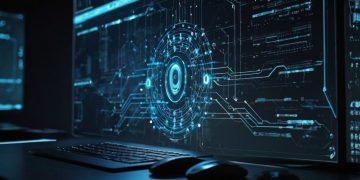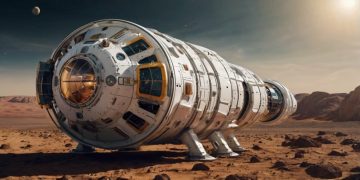The Future of Artificial Intelligence: Predictions for the Next Decade
Artificial Intelligence (AI) has made significant strides over the past few years, revolutionizing industries and reshaping how we live, work, and interact with technology. As we look forward to the next decade, the potential of AI seems boundless. Here, we explore key predictions for the future of AI and what we can expect in the coming years.
1. Enhanced Human-AI Collaboration
The next decade will see AI becoming an even more integral part of our daily lives, not as a replacement for human workers but as a collaborator. AI systems will augment human capabilities, enabling us to perform tasks more efficiently and with greater precision. From healthcare to finance, AI will work alongside professionals, offering insights, automating repetitive tasks, and enhancing decision-making processes.
2. Advancements in Natural Language Processing (NLP)
Natural Language Processing (NLP) has already seen remarkable progress with the development of sophisticated language models like GPT-4. In the coming years, NLP will become even more advanced, enabling machines to understand and generate human language with greater accuracy and nuance. This will lead to more natural interactions between humans and machines, transforming customer service, content creation, and even personal assistants.
3. AI in Healthcare
AI’s impact on healthcare will be profound. We can expect to see AI-driven diagnostics, personalized treatment plans, and advanced medical research. AI algorithms will analyze vast amounts of medical data to identify patterns and predict outcomes, leading to early detection of diseases and more effective treatments. Robotics powered by AI will assist in surgeries, improving precision and reducing recovery times.
4. Ethical and Transparent AI
As AI systems become more pervasive, the need for ethical and transparent AI will become paramount. There will be increased emphasis on creating AI that is fair, unbiased, and explainable. Regulatory frameworks will be established to ensure that AI development and deployment are aligned with ethical standards, protecting user privacy and preventing misuse.
5. AI in Education
The education sector will witness a transformation driven by AI. Personalized learning experiences will become the norm, with AI systems analyzing students’ strengths and weaknesses to tailor educational content. Virtual tutors and AI-powered learning platforms will provide support and guidance, making education more accessible and effective for students worldwide.
6. Autonomous Vehicles
The next decade will see significant advancements in autonomous vehicle technology. Self-driving cars, trucks, and drones will become more prevalent, reshaping transportation and logistics. AI algorithms will improve navigation, safety, and efficiency, reducing accidents and traffic congestion. Autonomous vehicles will also have a positive impact on the environment by optimizing routes and reducing emissions.
7. AI in Entertainment
AI will continue to revolutionize the entertainment industry. From personalized content recommendations to AI-generated music and art, the possibilities are endless. AI will enhance the creative process, enabling artists and creators to explore new frontiers. Virtual reality (VR) and augmented reality (AR) experiences will become more immersive and interactive, blurring the lines between the real and digital worlds.
8. AI and Cybersecurity
With the increasing reliance on digital technologies, cybersecurity will be a critical concern. AI will play a vital role in protecting against cyber threats by detecting and responding to attacks in real-time. AI algorithms will analyze patterns and anomalies, identifying vulnerabilities and mitigating risks. This proactive approach will strengthen the security of sensitive data and critical infrastructure.
9. Sustainable AI
The future of AI will also focus on sustainability. Efforts will be made to reduce the environmental impact of AI technologies, from energy-efficient algorithms to eco-friendly data centers. AI will also contribute to solving global challenges such as climate change, resource management, and conservation efforts, leveraging its analytical capabilities to develop innovative solutions.
10. AI and Workforce Transformation
The integration of AI into various industries will inevitably lead to changes in the workforce. While some jobs may be automated, new roles will emerge, requiring skills in AI development, maintenance, and oversight. There will be a growing demand for AI specialists, data scientists, and professionals who can bridge the gap between AI and human needs. Continuous learning and upskilling will be essential to thrive in the AI-driven future.
Conclusion
The next decade promises exciting advancements in AI, with the potential to transform our world in unprecedented ways. From enhancing human capabilities to addressing global challenges, AI will play a pivotal role in shaping the future. As we embrace these changes, it is crucial to ensure that AI is developed and deployed responsibly, with a focus on ethics, transparency, and sustainability. The future of AI is bright, and the possibilities are limitless.






































